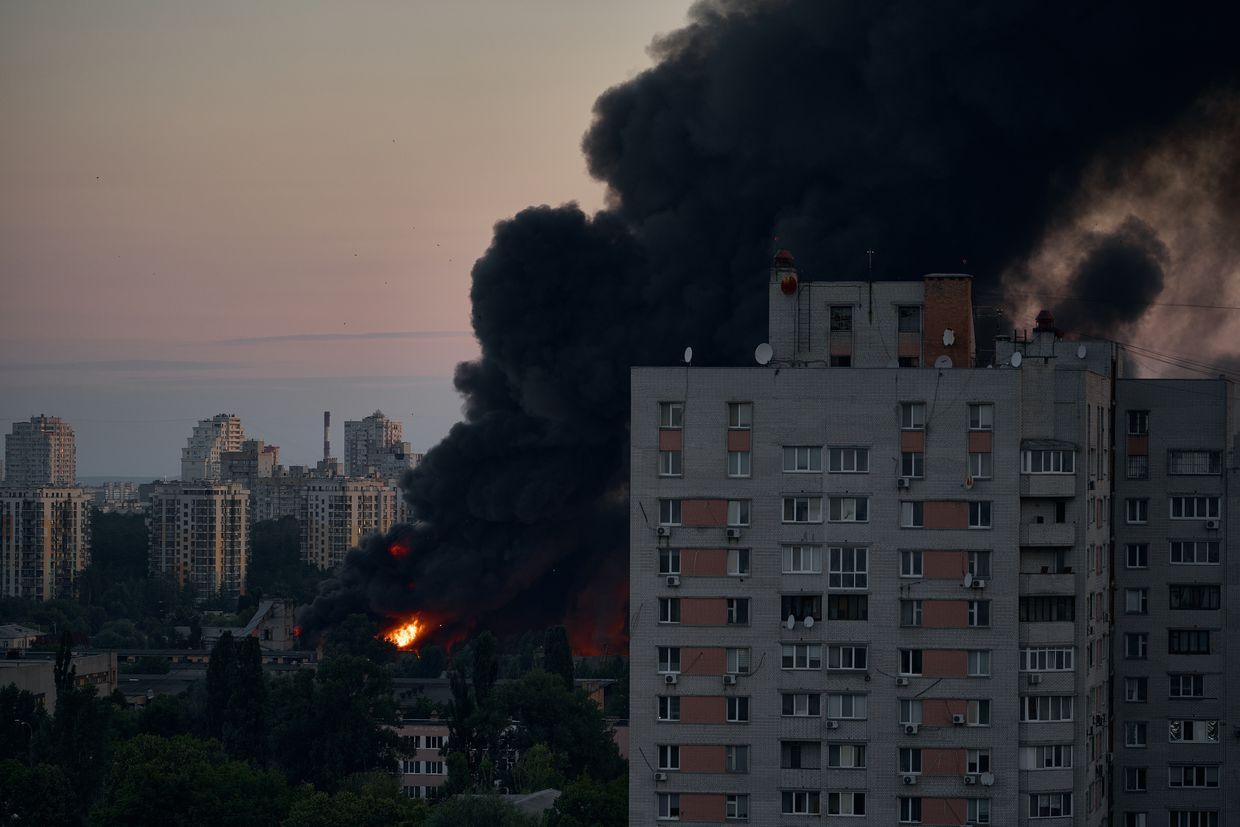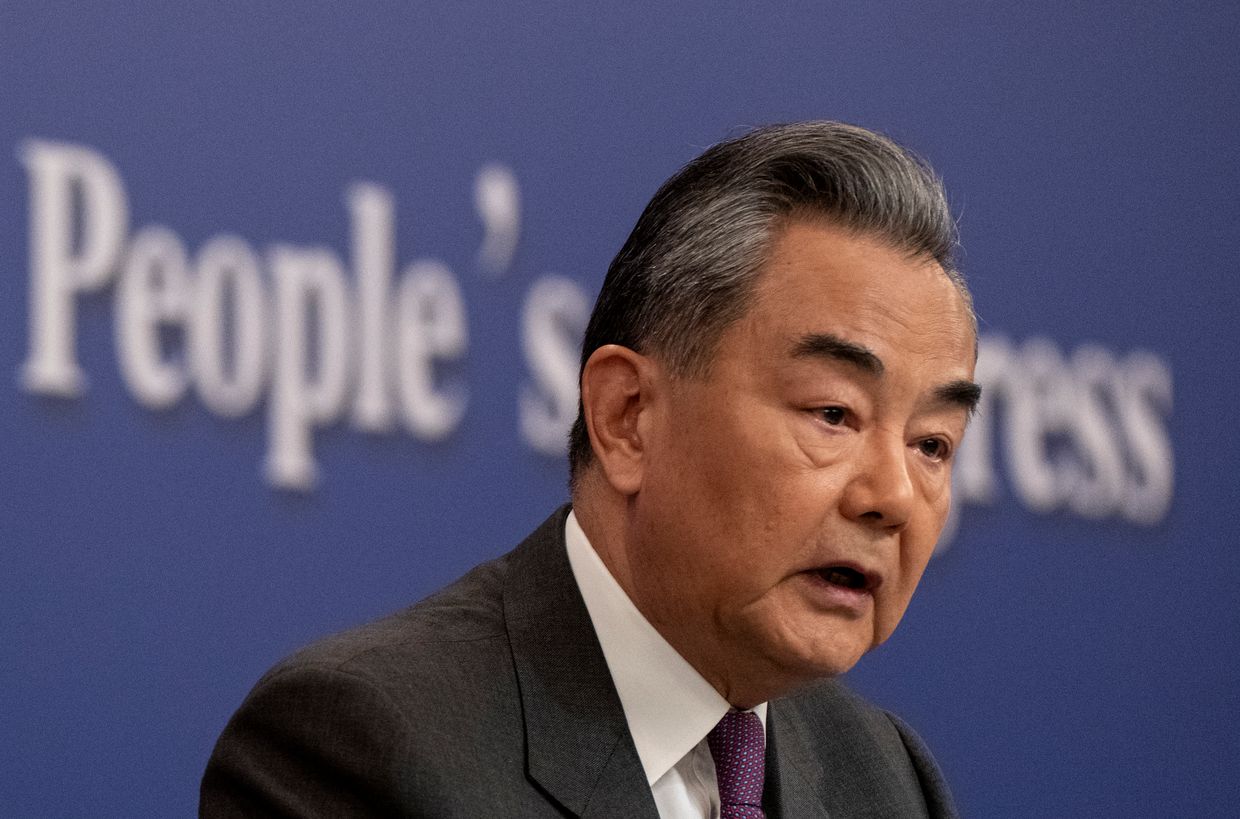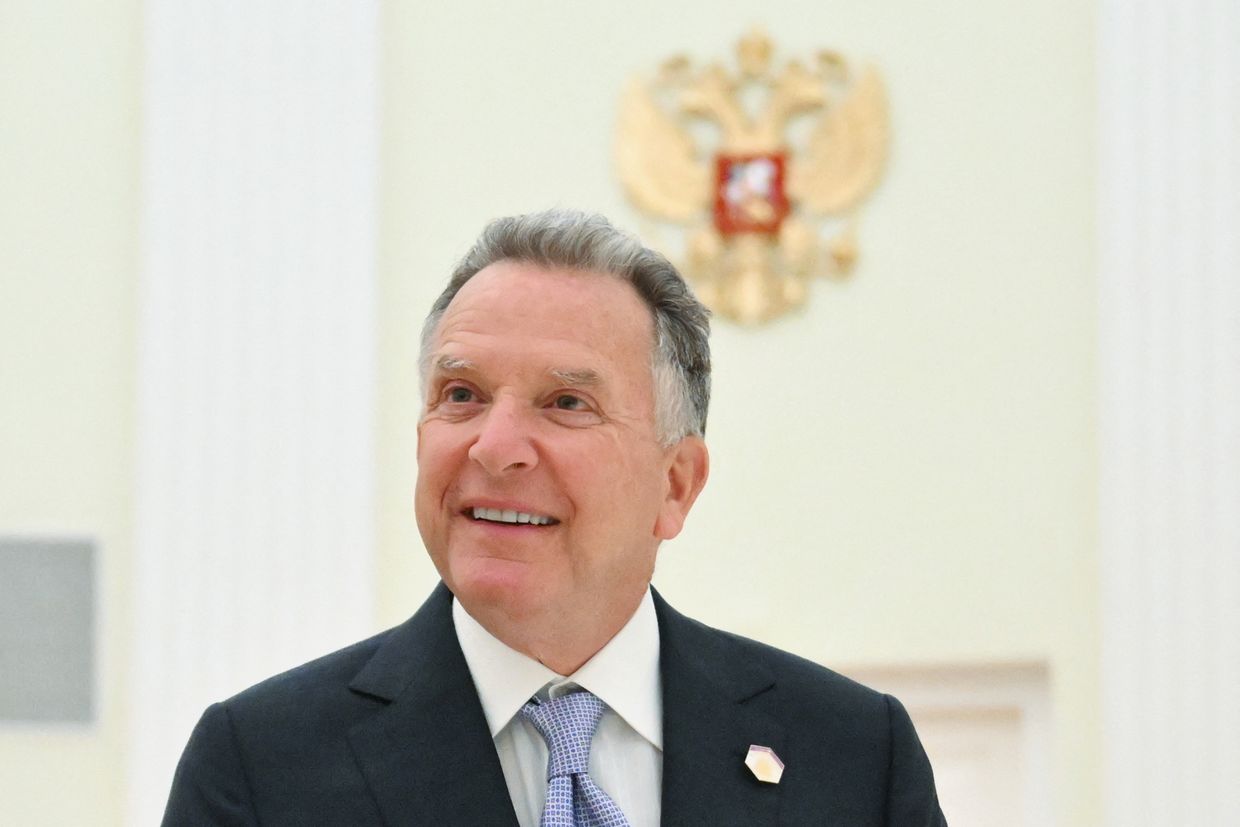Ukraine war latest: Russia pounds Kyiv with record overnight drone, missile attack, 1 dead, 26 injured

Key developments on July 4:
- 'Nothing but terror and murder' — Russia pounds Kyiv with record overnight drone, missile attack, 1 dead, 26 injured
- Zelensky, Trump discuss air defense, joint drone production amid Russian strikes
- 'There is also good news' — Ukrainian drones hit key military optics plant in Russia, General Staff confirms
- Russia intensifying use of chemical weapons in Ukraine, Dutch intelligence reports
- Ukraine, Denmark sign deal to launch Ukrainian military production on Danish soil
- Ukraine, Russia conduct new POW exchange
Explosions rocked the city of Kyiv for more than seven hours overnight on July 4, as Russia launched a record missile and drone attack targeting the capital and other cities across Ukraine.
At least one person was killed, and 26 others were injured in Kyiv, the State Emergency Service reported.
Mayor Vitali Klitschko said 14 people had been hospitalized, while Tymur Tkachenko, head of the Kyiv City Military Administration, in the afternoon confirmed a body had been found during rescue operations.
President Volodymyr Zelensky said Russia launched a record 550 drones and missiles during the seven-hour barrage. Kyiv Independent journalists on the ground heard multiple rounds of explosions in the city beginning around 8 p.m. local time on July 3 and continuing into the early hours of July 4
The attack damaged apartment buildings, businesses, a school, a medical facility, railway lines, and other civilian infrastructure in multiple districts. Fires blazed across the city, making the air dangerous to breathe.
"Russia, a terrorist country, has wreaked havoc," Tkachenko wrote on Telegram. "The Russians bring nothing but terror and murder. That is a fact."

Ukraine's Air Force reported that Russia had launched a ballistic missile towards Kyiv at around 12:30 a.m., and then additional missiles around 2:30 a.m.
As officials reported real-time updates on damage and casualties amid the ongoing assault, Kyiv Independent reporters in the city said that smoke from explosions clogged the air even in neighborhoods far from the attack sites.
"The first air raids in our cities and regions began yesterday, almost simultaneously with the start of media discussions of President Trump's phone call with Putin," Zelensky said in a post on social media on July 4.
"This was one of the largest-scale air attacks — deliberately massive and cynical... Russia is once again demonstrating that it is not going to end the war and terror."
Polish Foreign Minister Radoslaw Sikorski said that the consular section of Poland's embassy in Kyiv was damaged during Russia's attack on Kyiv. "I just spoke with Ambassador (Piotr) Lukasiewicz; everyone is safe and unharmed," Sikorski said.
He added that Ukraine urgently needs air defense systems.
Russia also targeted other regions of Ukraine with overnight attacks. Downed drones struck property and a vehicle in the city of Poltava, regional Governor Volodymyr Kohut reported. The strike injured two people.
Kyiv and other major Ukrainian cities have faced intensified drone and missile strikes in recent weeks, with Russia deploying Iranian-designed Shahed drones in record numbers.
Zelensky, Trump discuss air defense, joint drone production amid Russian strikes
President Volodymyr Zelensky and U.S. President Donald Trump held a phone conversation on July 4, agreeing to strengthen Ukraine's air defenses, Zelensky announced on Telegram.
The call came as Russia escalated its aerial campaign across Ukraine.
"Today we discussed the situation: Russian air strikes and, more broadly, the situation on the front lines. President Trump is very well informed," Zelensky said.
"We discussed air defense options and agreed to work on increasing airspace protection. We agreed on a meeting between our teams."
Zelensky said the two leaders also discussed Ukraine's defense industry potential and explored possibilities for direct cooperation with U.S. partners.
"We are ready for direct projects with America and believe that this is extremely necessary for security, especially with regard to drones and related technologies," he added.
Trump told Zelensky that the U.S. is willing to assist Ukraine with air defense amid intensified Russian strikes, Axios reported, citing unnamed sources. The call between the two presidents reportedly lasted about 40 minutes.
This conversation followed a phone call between Trump and Russian President Vladimir Putin on July 3, during which the Kremlin said Putin reaffirmed that "Russia will continue to pursue its goals" in its war against Ukraine despite U.S. calls for a ceasefire.
Trump told reporters on July 3 that he was "very disappointed" by the conversation with Putin.
"I don't think he's there... I don't think he's looking to stop this fighting."
The call also followed the U.S. Defense Department's decision to pause shipments of key weapons systems to Ukraine, including Patriot missiles and precision-guided artillery rounds. Kyiv has warned that the delay threatens to weaken its air defenses and emboldens Moscow.
Despite repeated expressions of frustration about Russia's continued aggression, Trump's administration has yet to impose new sanctions or approve additional aid for Ukraine since taking office in January.
While Russia and Ukraine resumed direct talks in Istanbul this year, the two rounds of negotiations — on May 16 and June 2 — have yielded only prisoner exchanges and no progress toward a ceasefire.

'There is also good news' — Ukrainian drones hit key military optics plant in Russia, General Staff confirms
Drones struck multiple targets in Russia overnight on July 4, including a high-value defense facility in the southern Rostov Oblast, according to Andrii Kovalenko, head of the counter-disinformation center at Ukraine's National Security and Defense Council.
Kovalenko said a drone hit the Azov Optical and Mechanical Plant in the town of Azov, Rostov Oblast. The facility reportedly manufactures critical components for the Russian military, including sights, rangefinders, thermal imaging systems, and fire control equipment for tanks, infantry fighting vehicles, ships, and aircraft.
"Despite the difficult night, there is also good news. There were attacks on facilities in Russia, particularly in Moscow and Rostov oblasts," Kovalenko wrote. "This is where the 'eyes' for Russian armored vehicles are assembled."
Overnight on July 4, Russia launched a massive drone and missile assault on multiple Ukrainian cities, with Kyiv as the primary target. At least 23 people were injured in the capital amid widespread destruction and high levels of air pollution.
Ukraine's General Staff later confirmed that its drone units struck the Scientific Research Institute of Applied Chemistry (FNTs NIIPKh) in Sergiyev Posad, Moscow Oblast.
The military said the facility is involved in the production of thermobaric warheads for Shahed-type drones and plays a critical role in Russia's airstrike capabilities.
Russia's Defense Ministry later claimed that air defense systems had intercepted or destroyed 48 Ukrainian drones overnight. According to the ministry, 26 were downed over Rostov Oblast, 12 over Kursk Oblast, six over Belgorod Oblast, three over Oryol Oblast, and one over Lipetsk Oblast.
The Kyiv Independent could not independently verify these claims.
Russia intensifying use of chemical weapons in Ukraine, Dutch intelligence reports
Russia is escalating the use of chemical weapons against Ukrainian forces, the Netherlands Military Intelligence (MIVD) reported on July 4.
Russian troops use banned chemical agents as psychological warfare to panic Ukrainian forces, forcing soldiers from dugouts and trenches with gas grenades dropped by drones, making them easy targets for subsequent drone or artillery attacks.
According to MIVD report, it was previously known that Russia used tear gas, but now intelligence has confirmed the use of chloropicrin — a substance that can kill in high concentrations in enclosed spaces.
Use of of chloropicrin, banned under international law, was discovered by the Netherlands Military Intelligence and Security Service (MIVD) and General Intelligence and Security Service (AIVD) together with the German foreign intelligence service BND.
The Kyiv Independent previously reported rising chemical attacks, but Ukraine could not accurately identify the chemical substances due to lack of equipment.
The U.S. State Department had already reported in May that Russian forces have used the chemical agent chloropicrin in Ukraine. The May 1 announcement was part of a larger statement about the introduction of new U.S. sanctions against more than 280 individuals and entities.
For now, the original statement has been removed from the U.S. State Department website.
Russia is using this type of weapon more frequently and "with ease," says MIVD Director Vice Admiral Peter Reesink.
Dutch Defense Minister Ruben Brekelmans, who announced the news to the Dutch parliament, called the situation "absolutely unacceptable," calling for "more sanctions, isolation of Russia and unwavering military support for Ukraine."
"We are making this public now because Russia's use of chemical weapons must not become normalized," Brekelmans said. "If the threshold for using this type of weapon is lowered, it is dangerous not only for Ukraine but also for the rest of Europe and the world."
Since the start of the full-scale invasion in 2022, Russia has conducted over 9,000 chemical attacks. At least three Ukrainian soldiers have died directly from exposure to toxic substances, according to Ukraine's Defense Ministry.
Dutch intelligence has established that Russian military leadership actively facilitates chemical attacks, and the use of banned substances has become standard practice for Russian forces.
Moscow is also increasing investments in chemical weapons programs, expanding research, and recruiting new scientists, MIVD and AIVD observe.
The U.S. has accused Russia of deploying chloropicrin, often used in agriculture and widely weaponized as a "vomiting agent" during World War I.
Ukraine, Denmark sign deal to launch Ukrainian military production on Danish soil
Kyiv and Copenhagen signed a landmark agreement on July 4 that allows Ukrainian defense companies to open production facilities in Denmark, Strategic Industries Minister Herman Smetanin announced.
"This is a unique case of international cooperation for the Ukrainian defense industry," Smetanin wrote on Facebook, following the signing ceremony in Copenhagen alongside Danish Industry Minister Morten Bodskov.
The deal marks the first time Ukrainian defense technologies will be exported abroad specifically for supply to Ukraine's own Armed Forces, he said.
A year ago, Denmark became the first country to fund weapons production by Ukrainian manufacturers. Now, it has become the first to host Ukrainian arms production lines on its territory, Smetanin added.
"Today, it has become the first country to which Ukraine exports its own defense technologies for production, scaling, and supply to the Ukrainian army," he said.
The agreement is part of Ukraine's broader effort to internationalize its defense production. President Volodymyr Zelensky announced on June 21 that Kyiv would soon begin exporting defense technologies and opening weapons production lines in partner countries.
To scale up domestic and international production, Zelensky has called on foreign partners to finance new projects and match Ukraine's rapidly growing manufacturing capacity.
Denmark has been a key backer of Ukraine since the start of Russia's full-scale invasion in 2022. In February 2024, Copenhagen signed a 10-year bilateral security agreement with Kyiv, pledging long-term defense cooperation until Ukraine secures NATO membership.
Ukraine, Russia conduct new POW exchange
A new prisoner of war (POW) exchange with Russia has taken place, bringing home another group of Ukrainian soldiers held in Russian captivity, many since 2022, President Volodymyr Zelensky confirmed on July 4.
"Our people are home. Most of them had been in Russian captivity since 2022," Zelensky said in a statement.
According to Ukraine's Land Forces, the group includes prisoners categorized as "wounded and seriously ill," those "under the age of 25," and civilians.
The exchange follows five swaps that occurred in June under the Istanbul deal reached between Ukraine and Russia on June 2. The agreement provided for the regular release of severely ill and wounded POWs from both sides, as well as the repatriation of the bodies of fallen soldiers.
Previous swaps have brought home service members from the Armed Forces, National Guard, and State Border Guard Service, many of whom were captured in 2022 during the start of Russia's full-scale invasion.
"Exchanges must continue, and I thank everyone who makes this possible," Zelensky said. "Ukraine's goal is to free all our people from Russian captivity. I thank everyone who helps make that happen."
Russia's Defense Ministry confirmed the exchange on July 4, without disclosing the number of soldiers returned.
Previous exchanges have focused on individuals with serious medical needs resulting from injuries and harsh conditions in captivity. Some previously released prisoners had defended Mariupol during the 2022 siege, while others fought in regions including Donetsk, Luhansk, Kherson, and Kyiv oblasts.
The Istanbul agreement followed months of stalled negotiations and was hailed as a humanitarian breakthrough despite the lack of broader political progress.
Ukraine continues to advocate for a full-scale "all-for-all" exchange, a proposal that Russia has so far rejected. Still, both sides have carried out smaller, phased swaps, sometimes multiple in a single week.
Note from the author:
Ukraine War Latest is put together by the Kyiv Independent news desk team, who keep you informed 24 hours a day, seven days a week. If you value our work and want to ensure we have the resources to continue, join the Kyiv Independent community.
















